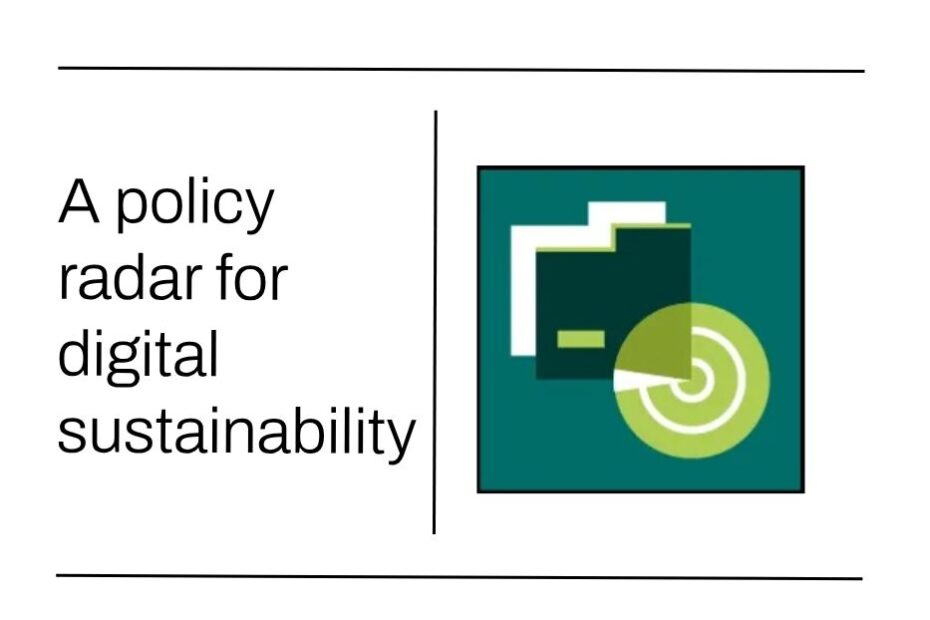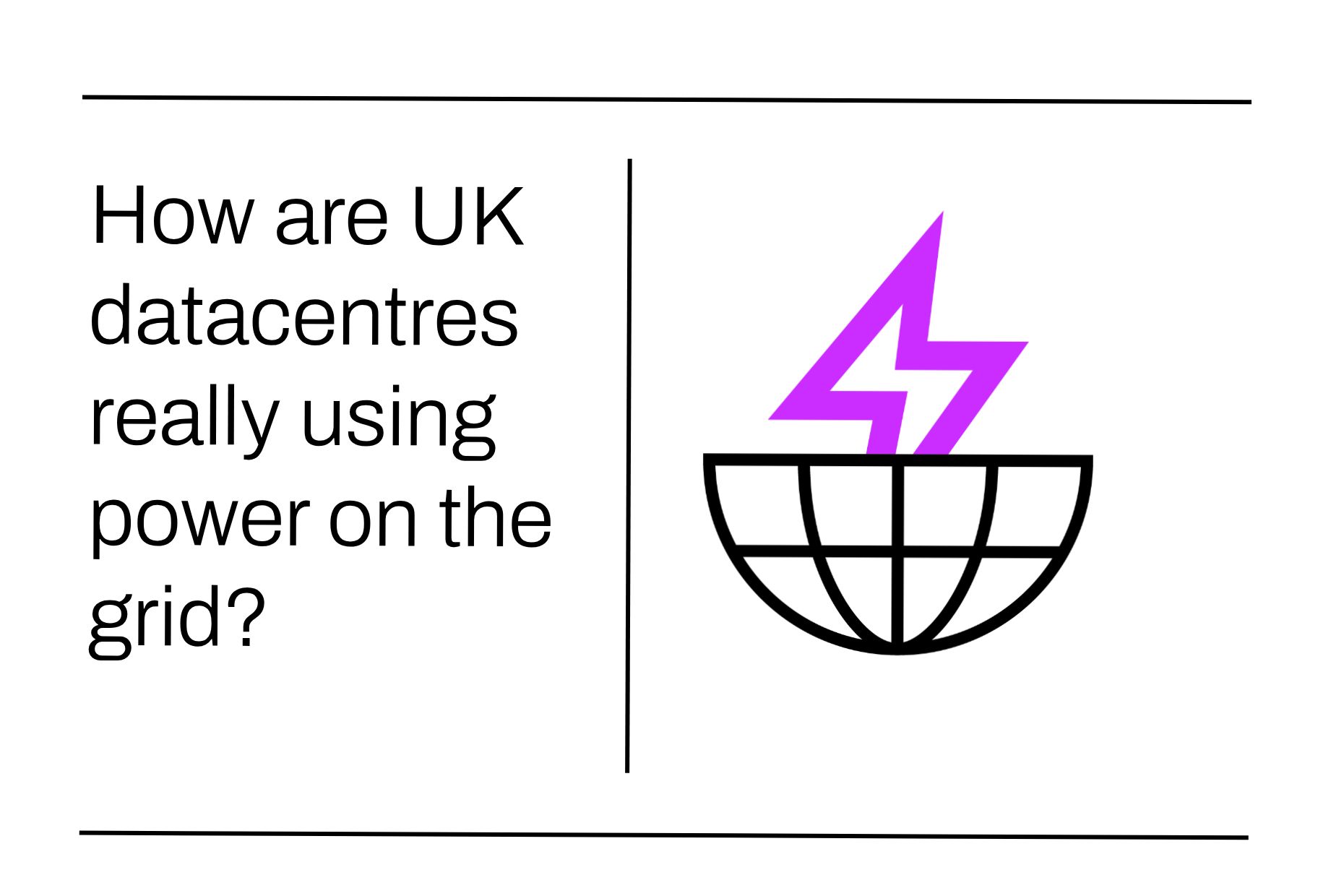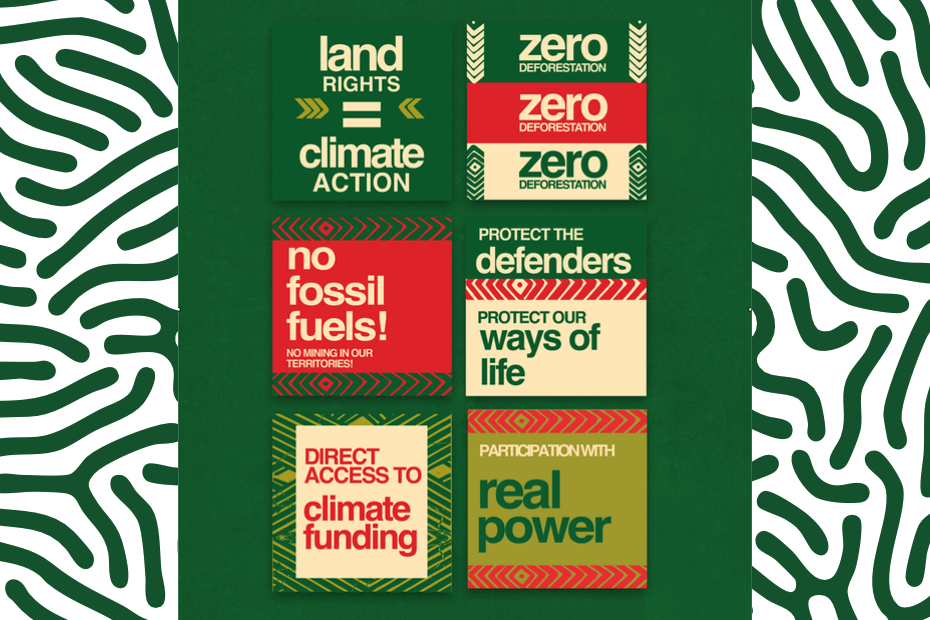At the Green Web Foundation, we know that while there’s obviously a role for organisations to make specific buying decisions to reduce the impact of the digital services they use or offer, policy has a massive role to play too. Director of Policy and Technology Chris Adams introduces a new project, we’ve been working on to created a shared resource – an open ‘policy radar’ with the Green Software Foundation, for advance notice of upcoming laws, consultations and other kinds of shifts in the policy landscape.
A bit of context – why are we involved in creating a policy radar in the first place?
Pretty much every sector you can think of that is transitioning away from fossil fuels is doing so with policy support, and the converse is true – if you aren’t seeing much change in a sector, a lot of the time, it’s because the rules of the game are rigged to favour a harmful, entrenched fossil fuel based default.
The tech sector is no different, and various well-resourced organisations operate internal calendars of new laws, events and consultations to send staff to, to either keep things as they are, heading off any laws that might require more transparency or ambition on climate, or to tip the scales of new laws in their favour, frequently at the cost of basically everyone else.
While we can’t do much to stop large well-funded groups planning behind closed doors, we can at least do something about the information asymmetry. If you can create an open, shared view of what changes to laws are on the horizon in tech, then it enables more actors to take part in the policy making process.
Working with the Green Software Foundation on the Policy Radar
A few years back, we were among the founding members of the industry body, the Green Software Foundation, and earlier last year, we proposed precisely this open, shared view – a “radar” to see coming legislation that affects sustainability in the tech sector.
Why make this with another organisation? Why not do it yourself?
One of the reasons we partnered with another organisation was that we wanted to build something where we knew people were already maintaining internal “policy radar” systems. Ideally, pooling resources to create a shared view would be valuable enough to justify the extra friction that comes from working across organisational borders, and in the end everyone would benefit, as it would be visible to everyone.
Who is it for, who can use it?
The “policy radar” we proposed was intended to be a public radar, that was accessible to a wide range of people – not just people inside one industry body like the Green Software Foundation, but to anyone with an interest.
We still wanted submissions to structured enough to capture useful information about a coming law though, and finally we wanted to allow for some form of moderation, to keep content relevant.
You can see the initial proposal made on Github, early last year.
Conceptually, the flow information might look like this diagram below.
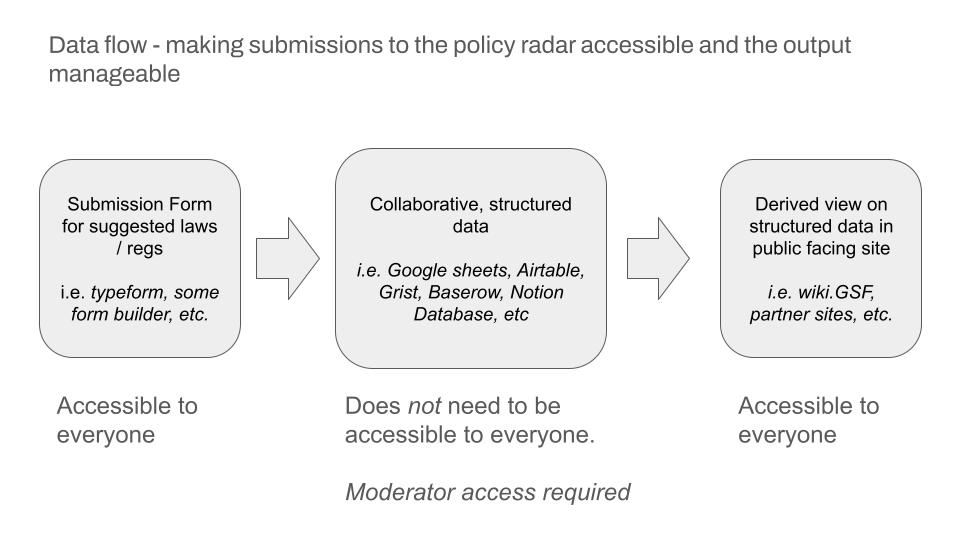
Earlier in May, we finally took the policy radar live, and it’s now accessible at policy-radar.greensoftware.foundation.
You can also see the official announcement on the Green Software Foundation website, with a quote from me about why having a policy radar is a good thing.
What does it look like?
Here’s screenshot – listing upcoming policies with a concise description of each one, along with a timeline listing when they come into effect, or the next responsible time to respond:
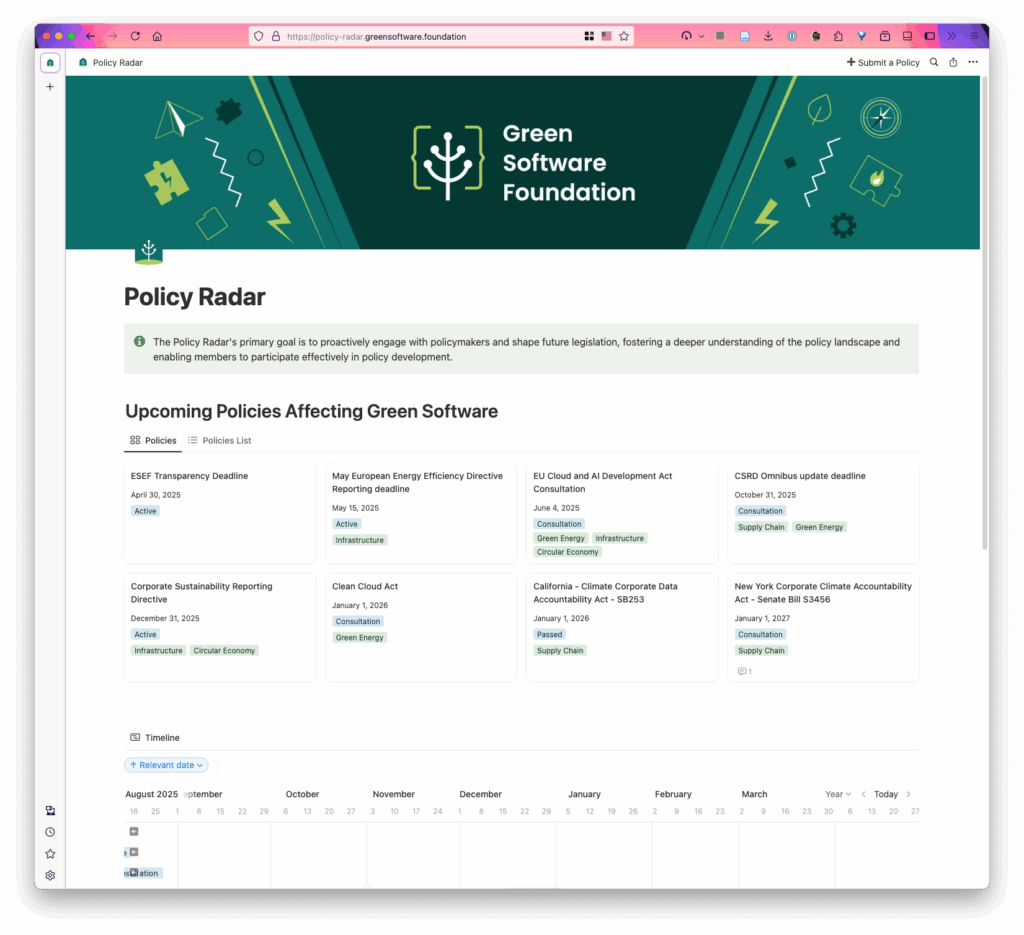
This is intended to be a shared resource for anyone working on the sustainablity of digital services to use, to help build a shared understanding of upcoming dates you might care about if like us, you want to see a just and sustainable internet, and more specifically a fossil free internet by 2030.
Try it yourself
If you follow the link to policy-radar.greensoftware.foundation, you’ll be able to see information about a number of upcoming laws, see relevant supporting documents like reports, draft legal text and so on, and if you’re feeling generous, suggest one yourself.
Your submission will be reviewed by a small group of moderators, and assuming it’s relevant to the topic show up for others to see as well.
The information here is intended to be open data – so it can be used for any purpose. If you’re up for working with us to create a consumable form of this data to use in other projects (like regular CSV or JSON files), drop us a line.
If you’re interested in helping out as a moderator, please get in touch, otherwise enjoy – we hope it’s useful.
